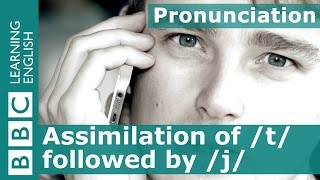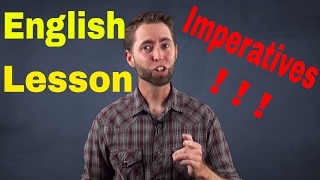Thursday, 15 January, 2026г.
















Где искать: по сайтам Запорожской области, статьи, видео ролики
пример: покупка автомобиля в Запорожье
How to Say Sorry in English and Learn to Apologize in English | Video with Subtitles
In this video I will help you learn how to say sorry in English, and how to apologize in English the proper way. You will learn how real English speakers offer apologies that are sincere and authentic.
It is very important as you learn English to be able to apologize or say sorry when you do something wrong.
This is a Learn English with Bob the Canadian video with English subtitles. Please enjoy!
⌛ Remember: Always watch the video two times. Once today, and once tomorrow to reinforce what you have learned!
✅ Learn a new English word everyday with me on Instagram: https://www.instagram.com/engbobthecanadian/
✅ Sign up for my email list and receive exciting free tips to improve your English: http://eepurl.com/dmbDYX
✅ Ask me questions on Facebook: https://www.facebook.com/bobthecanadian
✅ Get updates via Google+: https://goo.gl/dWDvqA
TRANSCRIPT:
Hi Bob the Canadian here. Sometimes you're just not getting along with someone and maybe you've done something that was a little bit mean or offended them. And I'm pretty sure you already know how to say, "I'm sorry." in English, but in this video I'll help you learn all of the English words and phrases that you'll need to know to give a proper English apology.
Hey welcome to this video, if this is your first time here don't forget to click the subscribe button below, leave a comment at some point during the video or a question, and for sure give me a thumbs up if you enjoy this English video lesson.
So in this video we're going to look at apologizing, saying you're sorry. But before we get started I'll tell you a little story about when I was a kid.
When I was about 8 or 9 years old, my brother had a friend come over for Sunday lunch. At the same time my grandmother was visiting. My grandmother is the mother of my mom. And while we were having lunch I was bugging my brother's friend. I was being mean to my brother's friend. And my grandmother, who was a great woman, said to me, "Bob! You are being mean! You need to apologize. You need to say you're sorry!"
So I turned to my brother's friend and I said, "I'm so sorry that I was bugging you. I'm so sorry that I was mean to you."
And he said, "I accept your apology."
So that's just an example of a small story where I was interacting with someone and I needed to offer an apology. And I did it with one of the simplest apologies in English by saying, "I'm sorry."
When you say you're sorry there are many different degrees of the sincerity of the apology. So you can say, "I am sorry. I'm sorry." You can also say, "I am so sorry." You could say, "I am truly sorry." Or, you could say, "I am very sorry." All of those add a level of authenticity and a level of sincerity to the apology.
It's important when making an apology that it's not fake. It's important when you're making an apology that are sincere, that you are truthful, that you very much feel sorry when you offer the apology. Otherwise it just seems fake.
In addition to saying, "I'm sorry.", you could also say simply, "I apologize." You could say, "I apologize for what did. I offer you an apology."
And, to go a little less formal, between friends you might say something as simple as, "My bad." You may have heard this in movies where someone says, "My bad bro!". "My bad." Where you're simply taking ownership of having done something that was kind of mean or wrong.
But let's take it one more level. You know how to say, "I'm sorry." You know how to say, "I apologize." But I think it's important when you're offering an apology in English to actually recognize what you did wrong. So you could say things like, "I apologize for my behaviour." "I apologize for my actions." Where you're recognizing that you did something wrong by naming it. You could say, "I am so sorry that I took your car without asking you."
This is a stronger form of apology. "I am very sorry that I ate the last cookie." So not only are you saying that you're sorry, not only are you expressing regret, but you are being more sincere by actually naming what you did wrong that offended someone. This is very very important when you're offering a truthful, good, sincere apology.
You can also extend it further by saying, "It was my fault." Where you actually admit fault. "It was my fault that the car ran out of gas." I've actually had to say that one before, "It was my fault that the car ran out of gas." Or, "Oh, I'm so sorry it was my fault that the car ran out of gas."
In addition to that you could just say, "It was wrong of me. It was wrong of me to drive the car until it ran out of gas and not put more gas in. It was wrong of me."
**Note: All images used under:
CC0 License ✓ Free for personal and commercial use ✓ No attribution required
From pexels.com or pixabay.com
Теги:
learn english learning english learn english with subtitles bob the canadian yt:cc=on apologizing in english saying sorry in english sorry in english how to apologize in english how to say sorry in english how to say sorry english expressions english lesson english speaking english teacher i am sorry saying sorry speak english speaking english spoken english english forgiving in english english video with subtitles
Похожие видео
Мой аккаунт


 У вашего броузера проблема в совместимости с HTML5
У вашего броузера проблема в совместимости с HTML5


